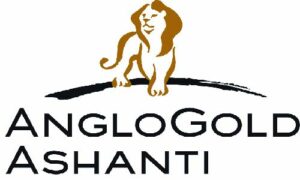 Mr. Obiri Yeboah Twumasi, Chief Inspector of Mines at the Minerals Commission, has said seven out of the 13 multinational mining firms in the country have submitted proposals and documentations to seek licence to commence underground operations in the country’s mining enclave.
Mr. Obiri Yeboah Twumasi, Chief Inspector of Mines at the Minerals Commission, has said seven out of the 13 multinational mining firms in the country have submitted proposals and documentations to seek licence to commence underground operations in the country’s mining enclave.
“All the mining companies are accessing underground mines, and in the next couple of years we will not have mines with open pits.
“Out of the 13 mines that operate open pits, seven are seeking to operate underground mines; they have been submitting proposals and documentations for licence to commence explorations,” he said.
He mentioned that most of the underground mines are not in operation now, “The largest underground mine we have in Africa, and in Ghana for that matter, is the Anglogold Ashanti Obuasi Mine which started operations in 1897. It is on care and maintenance, and has been suspended for some time now. A lot of gold has gone through the Obuasi Mine which has both underground and open pits”.
Mr. Twumasi made this known when briefing Zambian Minister of Mines, Energy and Water Development, Mr. Christopher Yaluma, and his entourage during a two-day working visit in the country to familiarise themselves with activities of Ghana’s mining sector and to share ideas and experiences.
The Minister for Lands and Natural Resources, Nii Osah Mills who hosted the Zambian delegation, said African countries need to collaborate and share ideas and experiences in order to strengthen the continent’s current Africa Mining Vision.
 Part of the Africa Mining Vision, Minister Mills said, requires African countries to work together and initiate local versions of the idea, even as each country continues to bear in mind the vision’s overall action framework.
Part of the Africa Mining Vision, Minister Mills said, requires African countries to work together and initiate local versions of the idea, even as each country continues to bear in mind the vision’s overall action framework.
Nii Osah Mills mentioned that continuous collaboration between the two countries will ensure that existing relations between them grows in all sectors.
Mr. Yaluma indicated that the exportation of natural resources without any added value is detrimental to the development of mining in many mining countries of Africa, hence the need to start working together and learning from one another.
He explained that it is his intention to study the regulatory framework of the mining sector and get acquainted with the achievements of Ghanaians mining.
“We have precious stones, which we have exploited for so many years; but we haven’t yet recorded significant benefits, and at the same time we have allowed our minerals to be exported in the raw form without value addition,” he said.
Zambia, he said, “has to develop to the status of other mining countries, and this cannot be done in isolation; hence the interaction with Ghana”.
The Principal Sector Policy and Planning Officer of Ghana’s Minerals Commission, Mr. Jerry Ahadjie — making a presentation about Ghana’s mining sector and the activities of the Minerals Commission and its successes over the years — explained to the Zambian Minister and his delegation that work of the Minerals Commission is guided by policies, regulations and procedures such as environmental regulations, child labour laws, small-scale mining regulations, linkage of development policies, use of local content and localisation policy, and stakeholder involvement regulations.
He said the Minerals Commission is also exploring and seeing to the preservation of other natural minerals like iron and salt, which have over the years been less explored.
He stressed the need for industrial stakeholders to promote research in the mining sector, as it will go a long way to help African countries add value to their natural resources before exportation.
As part of the familiarisation visit, the Zambian delegation, led by Minister Mills, also paid a courtesy call on President John Dramani Mahama at the Flagstaff House in Accra.



